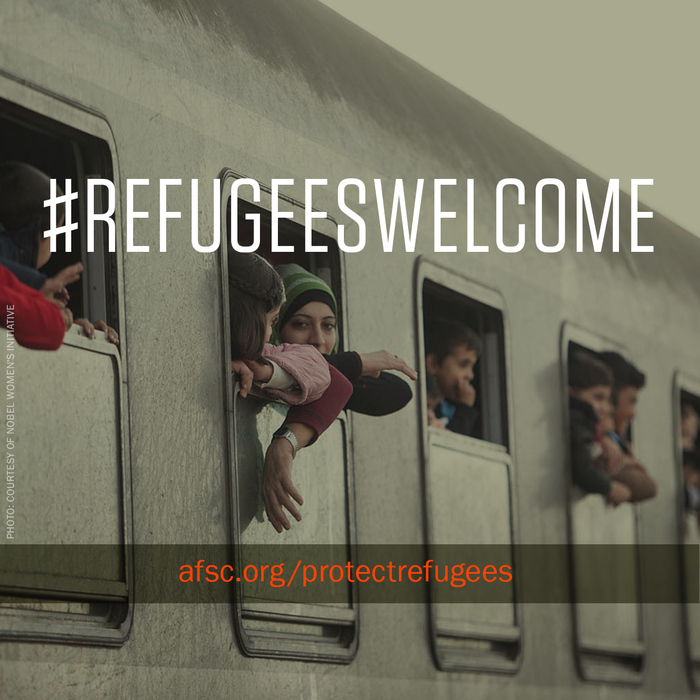
The U.S. must lead by example and ensure protection for all refugees.
Images of Omran Daqneesh flood my mind, the five-year-old Syrian boy who sat in shock in an ambulance, blood covering his body, after a military strike hit his home in Aleppo, Syria. Millions more like him, from Afghanistan to Sudan to Cuba to Honduras, have been made invisible by a world that has forgotten—or worse yet demonized and destroyed—their communities.
Every day nearly 34,000 people are forced to flee their homes because of violence, war, and persecution. From across Central America, the Middle East, Africa, and beyond, people are in desperate need of finding protection and safety for themselves, their loved ones, and their children.
I will never forget the faces and stories of the refugees I had the honor of meeting in Nashville, where I worked on resettlement and related issues in refugee and immigrant communities. Mainly from Burma, Bhutan, and Somalia, they had seen and experienced a pain many of us will never know.
They opened their doors and hearts to a 21-year-old student they hardly knew; they put their trust in me and treated me with unwavering respect and compassion. Their eyes would light up as they opened their homes to me, greeting me with coffee, biscuits, water—limitless compassion and generosity despite the limited resources they may have had.
Our lawmakers could learn a lot from the refugees I’ve met. As the refugee crisis has escalated, we’ve seen a rise in anti-refugee rhetoric in communities across the U.S. In Washington, D.C., policymakers have used fearmongering to call for xenophobic measures that would effectively close our doors to refugees when they need us most—making it harder for people seeking refugee status and asylum and cutting assistance to those who have resettled in the U.S.
As constituents, we must call on our members of Congress to welcome and protect all refugees. To support inclusive policies rather than punitive ones that destroy lives and fuel division. The U.S. must end the perpetuation of a system that blames, accuses, and demonizes the victimized—invalidating their stories, and complicating access to care, safety, and welfare.
We must end the detention and deportation of Central American refugees, many of whom have escaped unimaginable violence in their home countries. The Obama administration has authorized over 2 million deportations since 2008. Detention and deportation further undermine U.S credibility on the global stage, as we claim to champion human rights while imprisoning families with children in detention centers for months, sometimes years.
As Americans, ensuring the protection of refugees and migrants is not charity, but a responsibility we have to confront. We must acknowledge our roles in creating the problems that cause them to flee in the first place—from backing oppressive dictators across Latin America and the Middle East to invading and destroying entire communities in Iraq to our policies in the “war on drugs.”
We must stop contributing to the violence that has already plagued these communities, and instead support humane policies that center the sanctity of life, safety, and justice. It is our duty to advocate for increased funding, increased resettlement, and increased investment in humanitarian efforts that improve and protect the lives of all those victimized by violence that the U.S. has created or contributed to.
As the human rights and civil liberties of people of color, domestically and globally, continue to be violated and violently eroded by policies rooted in a racialized global structure of domination and imperialism, we must call on our leaders to identify and acknowledge the responsibilities they hold.
Sept. 6, 2016, is National Refugee Call-In Day. Faced with the greatest refugee crisis since World War II, it’s more important than ever that we lift our voices in support of refugee protection.
The U.S. must lead by example in ensuring protection for all refugees—and help to build the welcoming, inclusive communities that all people deserve.